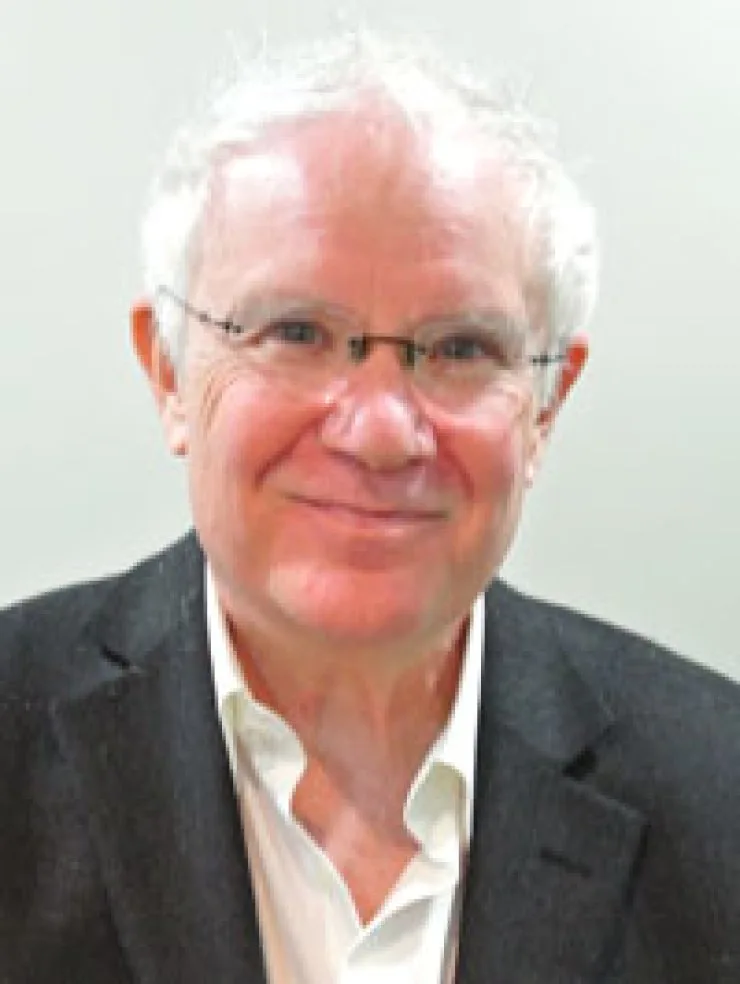This article reflecting on international human rights and the Universal Declaration of Human Rights (UDHR) first appeared in a series of articles about the Declaration in our Winter 2019 issue. To listen to Aaron Rhodes discuss this topic in our Foreign Policy ProvCast episode titled “Pessimism over Human Rights’ Future,” click here.
The seventieth anniversary of the Universal Declaration of Human Rights (UDHR) should encourage a critical review of the United Nations (UN) human rights system and of contemporary human rights discourse more generally, a review leading to a reformation movement in human rights.
No one concerned about the erosion of freedom in the world can afford to be complacent about the state of international human rights, or simply blame it on bad actors. The UN’s bureaucratic human rights mechanisms increasingly fail to protect individual human rights, yet offer cover to human rights abusers.
For example, when China was examined under the UN Universal Periodic Review mechanism on November 6 last year, Chinese authorities boldly denied the very concept of universal human rights, claiming to uphold human rights “with Chinese characteristics,” and bragged about the country’s economic progress. Even if one (mistakenly) considers increases in Gross Domestic Product (GDP) to reflect improvements in human rights, China’s labor practices are scandalous. Yet no delegate from any liberal democracy called out this crude cultural relativism and denial of universality or the fraudulence of a repressive one-party dictatorship conflating economic development with improvements in human rights. While 100 state delegations spoke up during the review, only 13 criticized China’s detention of about 1.5 million Muslims, Tibetans, and members of minority religions in camps where all are humiliated, many are subjected to torture, and some are murdered. In response, Vice Minister for Foreign Affairs Le Yucheng rejected criticisms as “politically driven” and explained that the camps are set up for “transformation through education” of “extremists.” He threatened that the alternative would be “wiping them out,” which, in Chinese jargon, means “physically eliminating them,” according to Bitter Winter, a human rights publication. Over 80 delegations, many from countries receiving Chinese loans and assistance, obediently praised China’s human rights practices, apparently reading from scripts prepared by China. Human rights groups accused the UN bureau organizing the review of removing critical information they had provided.
UN human rights processes have no positive influence on China because China and other authoritarian states control inclusive international forums, and ruthlessly exploit the UN human rights system, using it to legitimate themselves and to attack free societies and the principle of freedom itself. The system tilts heavily toward protecting the status quo in the name of peace and stability. Human rights protections are no longer a yardstick to measure the moral legitimacy of governments: all governments today, even that of North Korea, which burns political prisoners alive, brag about their human rights protections because the definition of human rights has become so capacious that they have a place at the human rights table. The effort to secure basic freedoms in the form of civil and political rights has been diluted by the proliferation of human rights in the form of new treaties and expansive judicial interpretations, and human rights activists are at the forefront of anti-“hate speech” censorship and blatantly political campaigns to secure specific material entitlements as legally mandated human rights.
Today, with the growth of authoritarianism, we witness a global retreat from honoring basic individual freedoms like the freedom of religion, while no progress is made on chronic problems like apostasy laws that deny about 1.3 billion Muslims the right to change their religion. At the same time, there are more human rights; more human rights treaties, processes, and institutions; more “high-level” human rights officials; and more national and international human rights bureaucracy. The vast proliferation of human rights has been in the expansion of collective rights, not in individual rights that were the focus of the foundation of the UN itself. There are new, unnecessary UN collective rights treaties in the pipeline, and they proceed toward ratification because states have neither the political courage to stop the juggernaut nor the understanding of why they should.
Human rights discourse in the international community is too often technical talk about social policy issues, not about freedom from coercion. The proliferation and dilution of human rights is a desired goal of abusive governments, and one enthusiastically supported by those in liberal democracies who see it as a way to gain constituents, promote political goals, and build a global regulatory utopia. While more and more human rights have entered into international law, UN human rights dogma holds that all human rights are equal. The implications are absurd. For example, the European Union Charter of Fundamental Rights protects “the right to access a free placement service” as a fundamental human right. Is the right to taxpayer-funded employment counseling just as important, just as paramount, as the prohibition against slavery or the right to freedom of religion? Or, put another way, are those rights no more important than publicly funded employment counseling?
The human rights movement reveals a profound, left-leaning politicization; several years ago, the UN High Commissioner for Human Rights said the goal of human rights should be “substantive equality.” The increasing emphasis on economic and social rights has made the global human rights campaign largely indistinguishable from a transnational progressive drive for the international regulation of vast sectors of economic and social life.
To address these daunting problems, we need to consider their source. In affirming the universality of human rights, and our innate freedom and moral equality, the Universal Declaration of Human Rights has inspired many to struggle for their freedom. And the declaration has sometimes been seen as subversive: in the 1990s, Uzbek activists were jailed and tortured for possessing copies. But the UDHR states that economic and social rights, which can only be realized by positive law guaranteeing services, are universal human rights. And, according to the politics of the “indivisibility of all human rights,” a slogan dating from 1948, it equates these services with the right to freedom, what Immanuel Kant called our only original, innate right.
The framers of the UDHR prided themselves for having bridged the political divide between East and West, but in fact they punted, rather than upheld, the profound distinction between negative liberties and positive social rights. In the human rights system that has been built on the foundation of the UDHR, the concept of human rights has thus been detached from the principle that gave human rights its compelling moral power: that mankind is accountable to transcendent and universal laws of nature, and that in order to adhere to this natural law, authorities must respect our common human nature and our natural rights. Natural rights are prior to and independent of the laws and customs of states and cultures, and are inalienable, that is, they cannot be repealed or restricted by positive law. Economic and social rights are political; they require positive law for implementation, and by naming them as universal human rights, the UDHR established that human rights need not be natural rights. The idea of natural rights, always regarded as an obstacle by progressives and a threat by totalitarians, was undermined, and the conflation of natural and social rights has led to a widespread assumption that the basis for human rights lies in politics and in the positive laws of governments.
The profound difference between the two kinds of rights has been willfully fogged in by the UN dogma of the indivisibility and equality of all human rights. Economic and social rights are political ideas that have no basis in an objective and transcendent moral standard. We understand that such rights take time to realize; that they depend on resources; and that they are subject to compromises and changing historical interpretation. By equating them with innate freedoms, we take on the assumption that rights to those freedoms can likewise be balanced against political and cultural factors; we call into question the idea of human rights as a “trump card” protecting individual freedom. Having lumped state entitlements together, and morally equated them with natural rights in the big bin of “human rights,” there is a distinct tendency to think of natural rights as also subject to compromises—not as intrinsic and inalienable, but rather as optional and arbitrary, and ideological in nature, like economic and social rights.
The notion that the protection of basic freedoms is an obligation based in nature, or in the divine order, is America’s natural rights exceptionalism. Even in other liberal democracies, basic rights like the freedom of speech are subject to conditions and derogations in human rights treaties and national law. The 1789 French Declaration of the Rights of Man upheld the freedom of speech, but added that every citizen “shall be responsible for such abuses of this freedom as shall be defined by law,” putting laws above human rights. The European Convention on Human Rights, set up as a bulwark against totalitarianism, confirmed that “everyone has the right to freedom of thought, conscience and religion.” But it says this freedom can be limited in the interests of “public safety…the protection of public order, health or morals, or for the protection of the rights and freedoms of others,” all vague conditions subject to political abuse.
The principled, natural rights American approach to human rights, from which both government and citizens have often deviated, places the country in an increasingly isolated position with the general decay of the concept of human rights. At the same time, many observers today warn that the so-called “rule-based international order” is coming apart. International human rights institutions have, deservedly, lost credibility. In this situation, we ought to recall the missionary spirit of our Founders, who, while cautioning against foreign entanglements, and operating in a world without firm global norms and no global institutions, felt an obligation to reach out to oppressed people in other lands with the message of universal natural rights. In the bureaucratized and corrupt “church” of global human rights (and to borrow language from Ernst Troeltsch and Max Weber), the idea has been routinized and has lost its charismatic appeal. Whatever our approach may be to dealing with this fluid situation, it is clear that to improve human rights practice, we must clarify our discourse. In the big picture, to restore human rights as the North Star of people seeking freedom and democracy, we must recover the meaning of human rights. The foundations of human rights need tuck-pointing. And while all governments need to be held accountable for their abuses and challenged in bilateral relations, that is a challenge for civil society.







 Sponsor a student for Christianity & National Security 2024
Sponsor a student for Christianity & National Security 2024